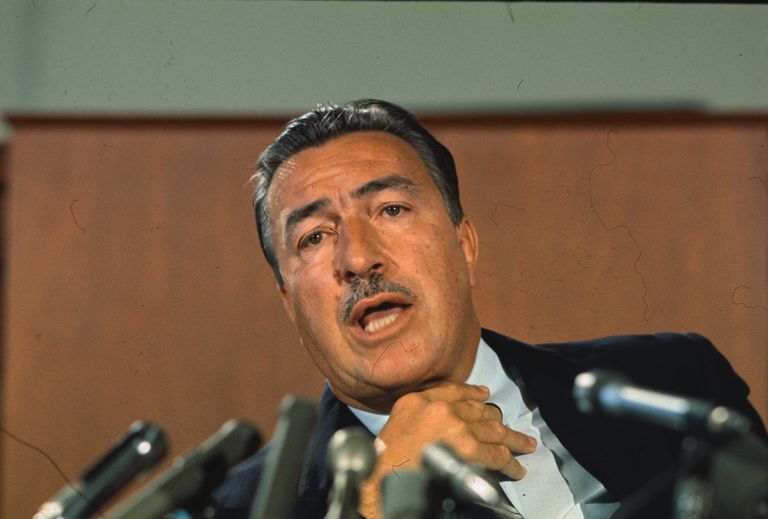NAN Celebrates Black History, Honoring Adam Clayton Powell, Jr.
Every day during Black History Month, we will honor chapter leaders, advocates, and partners who are shaping Black History now.
(February 15th, 2021) — Today we honor Adam Clayton Powell, Jr.
The Honorable Adam Clayton Powell, Jr. was the United States representative from New York – the Congressman for Harlem – he was THE Congressional Black Caucus. His work in Congress affected Black people nationally, though he only represented Harlem, New York. He was colorful, resourceful, and independent; he did what he did for Black people; he was also a Baptist preacher – Abyssinia Baptist Church’s pastor.
As a congressman, he was powerful, and since there were only a few Black Congressmen around during his time, he stood out. He became the chairman of the Labor and Education Committee. In that position, he engineered many essential social legislation pieces that benefited Blacks nationwide, including Medicare, Medicaid, and Headstart. He also contributed to the Civil Rights Act of 1964. Powell institutionalized the Black Agenda while standing on the shoulders of those before him and embodying the spirit of the movements they had put in place, laying the foundation for those who came after him, including the Congressional Black Caucus.
Born in New Haven, Connecticut, his light skin color came from his maternal grandfather and his mother’s ancestors. He was educated in the public schools, City College of New York, and in 1930, he graduated from Colgate University, Hamilton, New York. A year later, Powell received his master’s degree from Columbia University and studied for the Shaw University ministry.
During the Depression, he became a prominent voice in Harlem, organizing mass meetings, rent strikes, and public protests in front of White establishments and construction worksites while assisting his father in the church. Powell succeeded his father in 1937 when the elder Powell retired after 29 years as pastor of the Abyssinian Baptist Church. In 1941, he became the first Black to be elected to New York City’s city council. He was a “new breed” of religious/political leader who aligned himself with the civil rights movement and social activism.
Once in Congress, Powell demanded and got the respect, and the privileges afforded his White colleagues; he immediately challenged the status quo that forbade Blacks from using Capitol Hill facilities.
In Congress, Powell pushed legislation that made lynching a federal crime and chided Congress for allowing it to “flourish” unabated. He challenged the Southerners’ practice of charging Blacks a poll tax to vote and understood the value of politics as a tool in the struggle that Black people always had to gain a full measure of freedom, justice, and equality.
In the sixties, Powell worked with both Minister Malcolm X and Dr. Martin Luther King, Jr. He sometimes clashed with King, but the two also realized their disagreement was subservient to the overall Civil Rights Struggle. With Malcolm X, Powell studied how he held mass rallies in Harlem.
Eventually, Powell was stripped of his committee chairmanship, followed by an investigation by the House Judiciary Committee. He was expelled from Congress in 1967. He again won a special election for the vacancy that his expulsion had created but did not take his seat. In 1969, the Supreme Court ruled in his favor that the removal was unconstitutional, including the denial of his seniority status when he returned to Congress. At the next primary election, he was defeated by a newcomer, Charles Rangel. He also failed to get on the ballot as an independent for the general election in November.
He moved to Bimini, where, in April 1972, he became gravely ill. Powell was flown to a Miami hospital where, at the age of 63, he died.
Powell embodied the succession of Black religious leaders and culminated at the apex of Black politics. He left large footprints in the sands of time.
